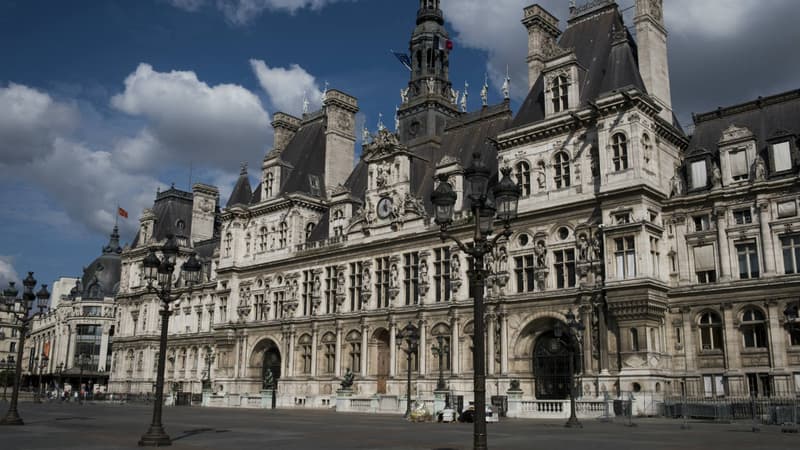Paris, Villejuif, Montreuil… Since the call by the national secretary of the Communist Party, Fabien Roussel, to close the town halls in solidarity with the movement against the pension reform, the positive responses of the councilors have multiplied.
Several town halls in France will therefore remain closed for part of the day on January 31, another day of inter-professional strike against the reform carried out by the Government of Emmanuel Macron.
This Thursday it was the socialist mayor of Paris, Anne Hidalgo, who announced that she was joining the call of the deputy from the North. “The building as such will be closed to the public. We will keep the school canteens, the civil status as well, in a way that will probably be a little different since there will be a lot of staff on strike”, explained the former presidential candidate in the microphone of BFM Paris Île-de-France.
The situation is “too serious”, he also explained on France 2, and considered that the government reform was “unfair and unjustified”.
In Île-de-France, other elected officials have taken action: the mayor of Bonneuil-sur-Marne, in Val-de-Marne, that of Villejuif, in the same department, or even the mayor of Montreuil, in Seine-Saint -Dennis.
In the Gironde, the mayor of Saint-Pierre-d’Aurillac, Stéphane Denoyelle, also announced his intention to close his town hall, and in the north, the councilor for Faches-Thumesnil, Patrick Proisy, for his part, announced that the hours of strike of the agents of his city would not be counted after 2:00 p.m., “so that they can go to the demonstration in Lille in the afternoon.”
Essential services to be provided
But do mayors even have the right to close the doors of their town halls? Elected officials are not salaried and therefore, strictly speaking, cannot strike. The staff, the employees, have the constitutional right to strike.
“That we interrupt the operation of certain non-emergency services for a day does not seem like a problem to me,” the constitutionalist Didier Maus analyzes for BFMTV.
But if a mayor decides to close his town hall, he must still provide certain essential services, such as marital status. The councilor must also provide “emergency services” and take charge of possible “major catastrophes”, such as the relocation of people in case of fire, for example.
Duty of neutrality of the public service
For Benjamin Morel, professor of public law at the University of Paris II Panthéon-Assas and a doctor of political science, the question is above all the one that arises around the obligation of neutrality of the public service, which “must not have an objective partisan”.
As Anne-Chalène Bezzina, a political scientist, constitutionalist and professor of public law at the University of Rouen, also explained to BFMTV.com, “an elected official has no right to politicize his administrative acts.” However, in the case of city hall closures, “we are in a bit of a gray area.” Civil servants, who have the right to strike, cannot, for example, prepare leaflets or slogans at their workplace.
Towards legal action?
And if a citizen felt that he belonged to one of the interested municipalities, he could take legal action, as well as before the prefect or the Ministry of the Interior. In the case of proceedings, “the jurisprudence leans towards the neutrality of the public service”, recalls Anne-Charlène Bezzina.
There are precedents: in 2018, the administrative court of Lyon had declared illegal the day without public services decreed by the mayor of Grenoble to denounce the fall in budget allocations.
“The mayor of Grenoble (…) participated in a national movement, of a political nature (…) Such a reason, alien to the interest of the municipality or to the proper functioning of municipal services, is likely to cloud this decision with illegality” The court then explained.
The affected mayors “really take a risk”, Benjamin Morel abounds in BFMTV.com, affirming that “in view of the jurisprudence”, the elected positions are illegal.
Whether appeals have been filed or not, the January 31 situation promises to be unprecedented in its scale and rarity. “It’s very exceptional,” recalls Anne-Charlène Bezzina.
Source: BFM TV


